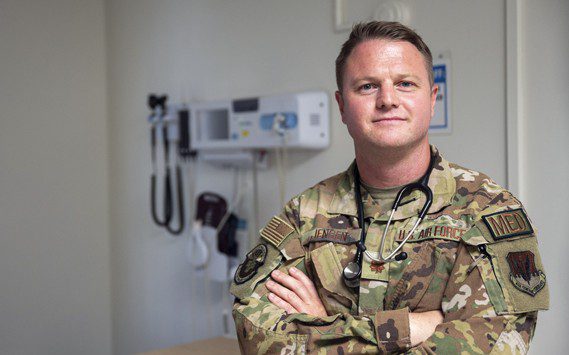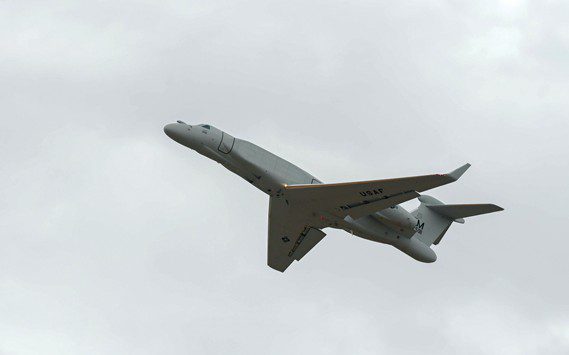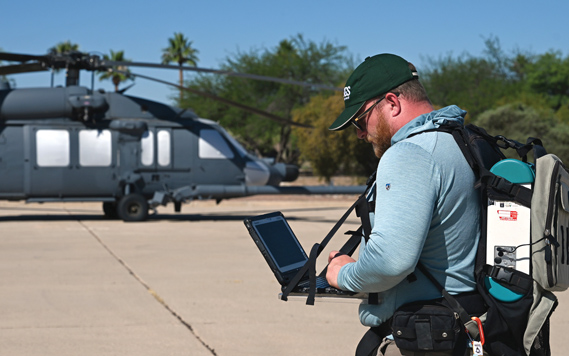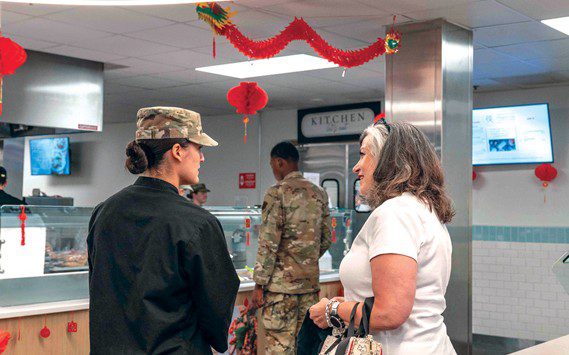WASHINGTON – The President has proposed a $168.8 billion budget for the Department of Veterans Affairs (VA) in fiscal year 2016. The proposed budget will support VA goals to expand access to timely, high quality health care and benefits, continue the transformation of VA into a Veteran-centric department and end homelessness among Veterans.
“VA has before it one of the greatest opportunities in its history to enhance care for Veterans and build a more efficient and effective system. This budget will allow us to continue important progress to better serve Veterans, their families and their survivors,” said Secretary of Veterans Affairs Robert A. McDonald. “We are listening to what Veterans, Congress, employees, Veterans Service Organizations (VSOs), and other stakeholders are telling us. We aspire to make VA a model agency that is held up as an example for other government agencies to follow with respect to customer experience, efficient and effective operations, and taxpayer stewardship.”
The budget includes $73.5 billion in discretionary funding, largely for healthcare, and $95.3 billion for mandatory benefit programs such as disability compensation and pensions. The $73.5 billion total in discretionary spending, including over $3.2 billion in medical care collections from health insurers and Veteran copayments, is $5.2 billion and 7.5 percent above the 2015 enacted level. The budget also requests $66.6 billion, including collections, for the 2017 advance appropriations for medical care, an increase of $3.4 billion and 5.4 percent above the 2016 medical care budget request. As a first-time request for advance appropriations for 2017 for Compensation and Pensions, Readjustment Benefits, and Veterans Insurance and Indemnities, within our mandatory benefits programs in the Veteran’s Benefits Administration, $104 billion is requested for 2017.
“We remain committed to providing Veterans the opportunity to pursue their education, find meaningful employment and access high-quality health care and earned benefits,” Secretary McDonald added. “From the men and women of ‘the greatest generation’ to the Veterans who have returned from our most recent conflicts in Iraq and Afghanistan, every Veteran deserves to have a seamless, integrated, and responsive VA customer service experience every time.”
However, more resources will be required to ensure that VA can provide timely, high-quality health care into the future. VA is hearing directly from Veterans and their representatives that they would prefer to get their care in VA facilities from the medical professionals they know and with whom they have relationships. In the coming months, the Administration will submit legislation to allow the Department to reallocate a portion of unused funding from the Veterans Choice Program to support essential investments in VA system priorities in a fiscally responsible, budget-neutral manner. This flexibility will allow the Department to serve Veterans the way they want and deserve to be served.
VA operates one of the largest integrated health care systems in the country with approximately 9.4 million enrollees; the tenth largest life insurance program; monthly disability compensation, pensions and survivors benefits to more than 5.2 million beneficiaries; educational assistance or vocational rehabilitation benefits and services to 1.2 million students; mortgage guaranties to over 2 million homeowners; and the largest cemetery system in the nation.
Here are highlights from the President’s 2016 budget request for VA.
With a medical care budget of $63.2 billion, including collections, VA is positioned to serve approximately 9.4 million Veteran patients enrolled to receive care in the fiscal year beginning Oct. 1. The enrollee total includes over 1.4 million Veterans who served in Operation Enduring Freedom/Operation Iraqi Freedom/Operation New Dawn
Major spending categories within the health care budget are:
$7.5 billion for mental health;
$2.8 billion for prosthetics;
$556 million for spinal cord injuries;
$232 million for traumatic brain injuries;
$243 million for readjustment counseling; and
$7.5 billion for long-term care.
Expanding Access
The President’s Budget would ensure that care and other benefits are available to Veterans when and where they need them. Among the programs that will expand access under the proposed budget are:
$1.2 billion in telehealth funding, which helps patients monitor chronic health care conditions and increases access to care, especially in rural and remote locations;
$446 million for health care services specifically designed for women, an increase of 8.3 percent over the present level;
$598 million for the activation of new and enhanced health care facilities;
$1.1 billion for major construction projects;
$86.6 million for improved customer service applications for online self-service portals and call center agent-assisted inquiries; and
$5.9 million to bring into full operation two new national cemeteries opening in 2015, and to activate one new national cemetery and one rural National Veterans Burial Ground in 2016.
The President’s Budget provides for full implementation of the Veterans Benefits Administration’s (VBA) robust Transformation Plan — a series of people, process, and technology initiatives — in 2016. This plan will continue to systematically improve the quality and efficiency of claims processing and assist the Department in processing all disability compensation claims within 125 days.
Major claims transformation initiatives in the budget invest $431 million to bring leading-edge technology to claims processing, including:
$290 million ($253 million in Information Technology and $37 million in VBA) to support the electronic claims processing system – the Veterans Benefits Management System (VBMS); and
$141 million for Veterans Claims Intake Program (VCIP) to continue conversion of paper records, such as medical records, into electronic images and data in VBMS.
In addition, the President’s Budget supports rightsizing VBA’s workforce to address staffing needs so it can continue to improve the delivery of benefits to Veterans. As VBA continues to receive and complete more disability compensation rating claims, the volume of appeals, non-rating claims, and fiduciary field examinations correspondingly increases. The request for $85 million for 770 additional full-time equivalent employees (FTE) will allow VBA to provide more timely actions on appeals and non-rating claims, and will ensure strong fiduciary oversight.
The Administration has made the elimination of Veteran homelessness a national priority. The budget request targets $1.4 billion for programs to prevent or reduce homelessness, including:
$300 million for Supportive Services for Veteran Families (SSVF) to promote housing stability;
$374 million for the HUD-VASH program wherein VA provides case management services for at-risk Veterans and their families and HUD provides permanent housing through its Housing Choice Voucher program; and
$201 million in grant and per diem payments that support temporary housing provided by community-based organizations.











